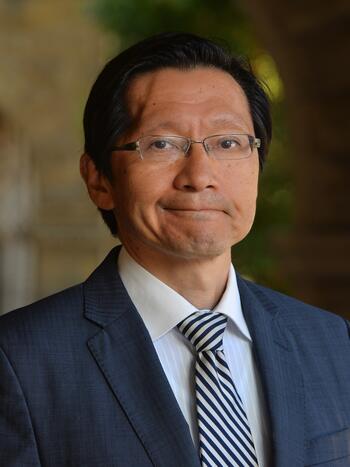The format of this presentation is each of the four speakers will have approximately 15 minutes to present their research. This will be followed by a short period of 5-10 minutes for any questions or comments from the audience.
In this session of the Global Affiliates Research Presentations, the following will be presented:
Yosuke Hatano, Shizuoka Prefectural Government, "Digital Transformation of the Public Sector and Possibilities to Introduce to Local Government of Japan"
What is needed for local governments in Japan to succeed in the age of digitalization? How can they adapt to survive in the rapidly changing environment? Players of the public sector in Japan are now under pressure to find ways of transforming social conditions and new tools to offer better solutions to the people. In his research, Hatano has searched for actual cases that have used the power of digital and information technologies in the policy-making process and in public service. In his presentation, Hatano will share an overview of the current situation as well as offer suggestions on ways to introduce digitalization to transform Japanese local governments.
Yusuke Matsuda, Nippon Foundation, "Social Impact Investing Trends and Best Practices in the U.S."
Social problems are becoming more complex and severe in current society. It is crucial for non-profit organizations to involve and create a coalition with governmental organization, for-profit enterprises, and citizens together to solve various social issues. Impact investment has been playing a crucial role to build this coalition of philanthropists and investors. Impact investment is a practice distinguished by its aim to general social and environmental benefits alongside financial returns. Currently, there is more than $70 billion in assets under management by major traditional investment funds such as BlackRock, Credit Suisse, and Goldman Sachs. As more financial and professional talent engages in solving social issues, we have seen non-profit organizations accelerating their capacity and speed to have social impact. In his presentation, Matsuda introduces Omydiar network, one of the most impactful investment fund's strategy, to help us learn how we can structure more effective financial schemes to solve social issues.
Akira Muto, Ministry of Foreign Affairs, Japan, "Two Revisionist Powers in Eurasia and How to Deal with Them in the 21st Century"
The world today is full of uncertainties. During the Cold War, the containment policy worked successfully against the single adversary, the Soviet Union, and led to the victory of liberal democracies. However, today, liberal democracies are challenged by more than one major power - first and foremost by the two revisionist powers, Russia and China, and possibly more including Iran. Is dual containment as suggested by the US Administration's National Security Strategy and National Defense Strategy a realistic and plausible policy? In his research, Muto explores alternative policy options and makes suggestions for U.S.-Japan Alliance to build upon FOIP (Free and Open Indo-Pacific) which has been advocated by the Japanese government in recent years with a focus on the differences between adversaries for purposes of defending and reinforcing liberal institutions. Muto prefers containment based on the balance of power tactics, as originally considered by George Kennan, rather than the "globalized" version of containment and defeating adversaries by means of war, which would be too costly.
Ramachandra Siddappa, Reliance Life Sciences, "A Scientific Visualization to Improve Biopharmaceuticals' Technical and Operational Management"
Biologics are drug products manufactured in, extracted from, or semi-synthesized from biological sources. Demand for biologics is increasing. The global pharmaceutical market is expected to grow at a compound annual growth rate of 9.4%, reaching $278 billion in revenue by the end of 2020. This high rate of growth is driven by factors such as aging population and increased prevalence of chronic disease, especially in the western world. However, the most important reason for such a high rate of increase in use of biopharmaceuticals is superior effectiveness in treating many diseases, including treating conditions for which there were previously few effective drug treatments available.
Biologics have a very complex production process and are affected by a wide range of factors such as cell system, fermentation media, operation conditions, problems faced in scaleup and very long batch periods. To meet the high demand of these lifesaving drugs and to overcome the challenges faced by biopharma industries, Siddappa has focused his research on strategic and operational decision making by applying mathematical programming techniques for production planning of biopharma manufacturing facilities for improved costs effectiveness and better capacity management.




